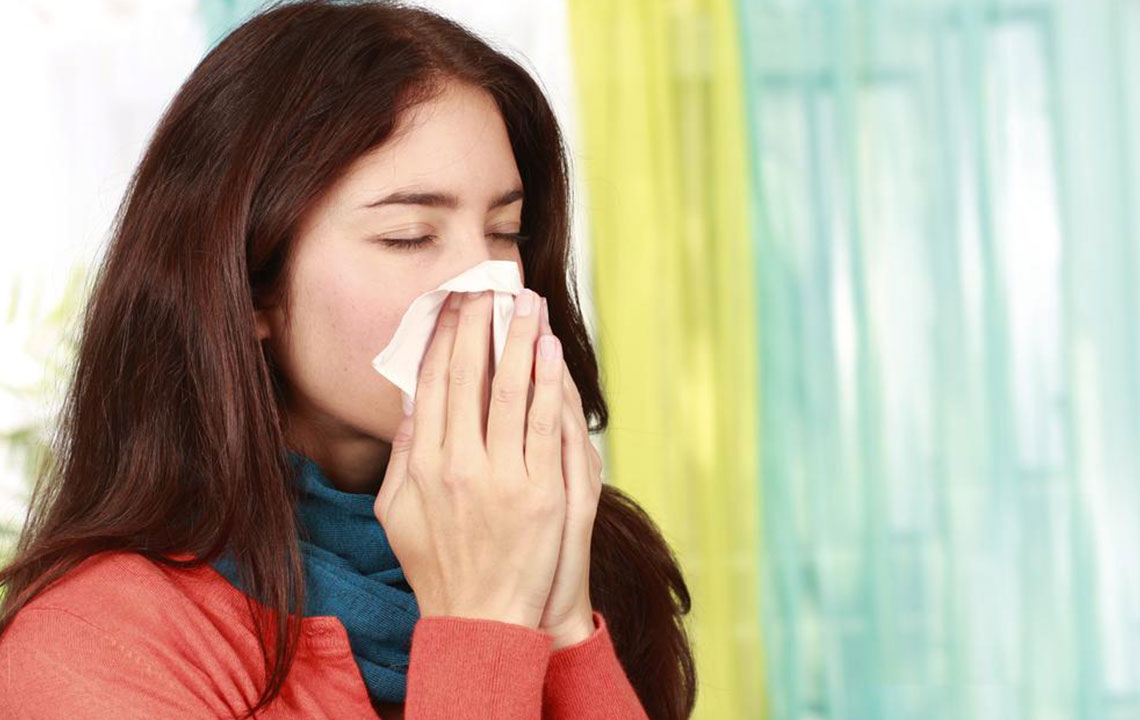Understanding the Link Between Nasal Polyps and Allergic Reactions: Causes, Symptoms, and Treatment Options
This comprehensive article explores the connection between nasal polyps and allergic reactions, detailing causes, symptoms, and various treatment options. It emphasizes the importance of recognizing the role of allergies in polyps development and offers insights into effective management strategies, including medications and surgical options, to improve respiratory health and quality of life.

Nasal polyps are soft, painless, non-cancerous growths that develop within the nasal passages or the sinus cavities. These small, teardrop-shaped formations are usually found where the sinuses drain into the nasal cavity, often subtly enlarging over time. While tiny polyps may not produce noticeable symptoms and might not require immediate treatment, larger or multiple polyps can cause significant health issues, including nasal congestion, breathing difficulties, and impaired sinus drainage. Recognizing the development and impact of nasal polyps is essential for effective management and improving quality of life.
In essence, nasal polyps arise due to chronic inflammation within the nasal and sinus tissues. This persistent inflammation can be triggered by various factors such as allergic reactions, recurring infections, and environmental irritants. Genetic predispositions also play a role, making some individuals more susceptible to developing these growths. Understanding the underlying causes helps in tailoring appropriate treatment strategies to manage symptoms effectively and reduce recurrence.
Recognizing the Symptoms of Nasal Polyps
The symptoms associated with nasal polyps are often subtle initially but tend to escalate as the polyps grow larger. Common signs include persistent nasal congestion, a frequent need to blow the nose, a runny nose, and frequent sneezing episodes. Many individuals report a decreased or lost sense of smell, which significantly impacts daily life and overall well-being. Headaches and facial pressure are also common complaints. Furthermore, people with nasal polyps are more prone to sinus infections, which exacerbate symptoms and complicate treatment. Allergies and irritants like dust, fumes, and occupational hazards often worsen these symptoms, creating a cycle of inflammation and discomfort.
The Relationship Between Nasal Polyps and Allergic Conditions
Nasal polyps are intricately linked to allergic conditions such as allergic rhinitis, asthma, and sinusitis. Many patients with nasal polyps often suffer from allergic sensitivities, which can provoke or exacerbate polyp formation. The inflammatory response triggered by allergens causes swelling within the nasal tissues, potentially leading to the development of polyps. Conversely, the presence of polyps can worsen allergic symptoms by obstructing normal airflow and mucus drainage, creating a vicious cycle that hampers respiratory function.
Research indicates that allergic reactions like sneezing, nasal itching, and watery eyes are common among individuals with nasal polyps. The inflammation caused by allergies perpetuates the growth environment for polyps, making allergy management a critical aspect of treatment. Understanding this connection underscores the importance of allergy testing and personalized treatment plans aimed at reducing allergen exposure.
Effective Treatment Strategies for Nasal Polyps
Although there is no universal cure for nasal polyps, various treatments aim to alleviate symptoms, prevent growth, and reduce the likelihood of recurrence. Medical management is usually the first line of defense, with nasal corticosteroid sprays being the most commonly prescribed medication. These sprays help shrink polyps and reduce inflammation within the nasal passages. For more stubborn cases, oral corticosteroids or injectable steroids might be necessary to achieve more significant symptom relief. However, long-term corticosteroid use warrants careful monitoring due to potential side effects.
Complementary medications such as antihistamines and decongestants are often prescribed to manage allergic symptoms and reduce nasal swelling. In cases where medication does not provide sufficient relief, surgical removal of the polyps becomes an option. This procedure, known as polypectomy, involves the use of minimally invasive techniques to excise the polyps and restore normal airflow and sinus drainage.
Post-surgical management often includes continued medication to prevent regrowth and regular follow-up appointments. Addressing underlying allergy triggers and maintaining good nasal hygiene are vital aspects of long-term management. Lifestyle modifications, such as avoiding known irritants and allergens, can significantly reduce the risk of recurrent polyps.
In summary, managing nasal polyps requires a comprehensive approach that combines medical treatment, lifestyle adjustments, and, in some cases, surgical intervention. Early diagnosis and personalized treatment plans are crucial for controlling symptoms, improving breathing, and preventing complications associated with these benign growths.





